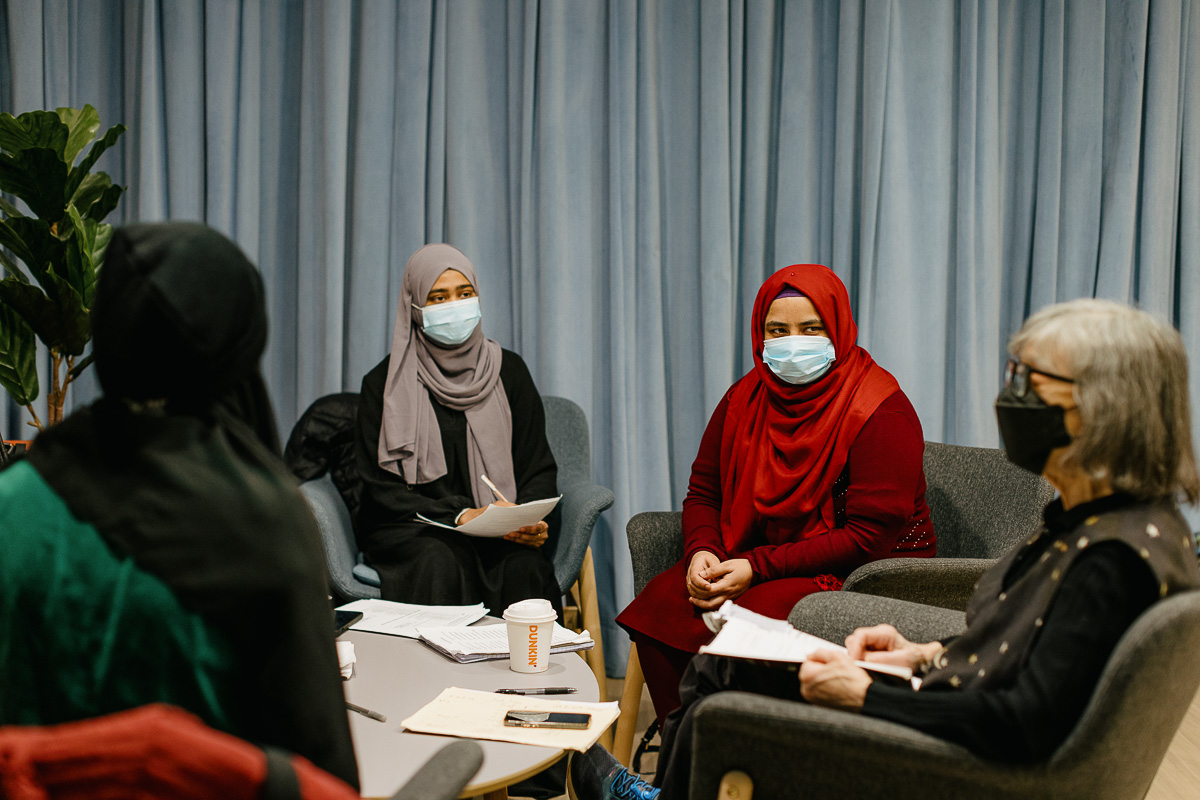The Arab-American Family Support Center (AAFSC) was established in 1994 as a center for culturally affirming support and healing-centered social services in New York City. We help address the economic and housing insecurities, health risks and disparities, and social and cultural barriers that keep immigrant families stuck in cycles of poverty.
AAFSC’s vision is more pressing today than ever: Striving for a socially just society where all immigrants including Arab, Middle Eastern, North African, and South Asian populations can fully partake as Americans. We pursue our vision across all priority areas, and we structure our activities around impact and outcomes.

The families we serve live at the intersections of many challenges that prevent them from fully participating as equals in the mainstream culture. Hearing their stories and feeling their struggles inspires us to be creative with our services, expanding our programs, and stretching our organizational budget to offer more services to more people. Thus, to be efficient and effective, we operate a flat organization and hire individuals who are generalists that can work in multiple programs and settings at any given time, and where they are needed.
As a settlement house, we are geographically embedded in the communities we serve. This translates to a better real-time understanding of community challenges.